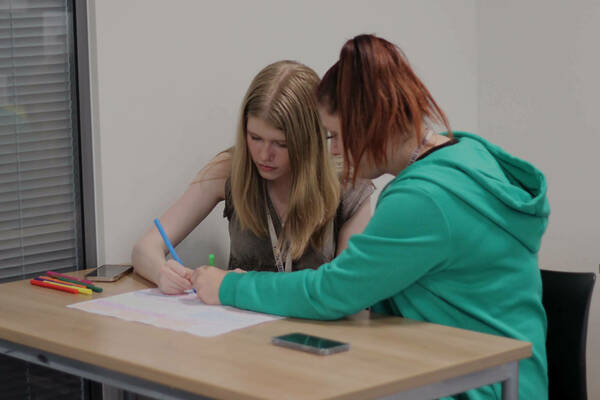Course overview
Economics helps you understand how best to make use of the world’s scarce resources. It plays a big part in politics and society and will help you understand the decisions made by individuals, businesses and governments. You study how the UK and international economies work and the implications of government decisions. You will also study the psychology behind individual decision making.
Economics will improve your analytical, evaluative and critical thinking skills and is a subject which is well respected by universities.
Entry requirements
Students studying three A Levels will be expected to have a minimum of two GCSEs at grade 6 and three GCSEs at grade 5/4, including English Language and Mathematics at grade 5/4 or above. Or eight GCSEs at a minimum of grade 5.
Topics you will study
Examples of topics covered include:
• Is it fair that Erling Haaland is reported to earn almost £1m per week whilst some nurses are having to rely on food banks?
• Should the high-speed train link between the north and south go ahead or could the money be better spent on other things such as education and healthcare?
• Should the government raise the tax on petrol to help cut pollution and global warming or should it reduce the tax to lessen the burden of the cost of petrol on households?
• Is globalisation good for the UK?
• Why is child poverty on the increase in the UK and should the government increase or reduce taxes on the rich?
• How will the government keep the economy on track whilst paying off the debts it has accrued owing to Covid?
• Should the Bank of England be lowering interest rates to help with the cost of living?
Key features
Economics has two major components:
Microeconomics looks at decisions that affect individuals such as how much they earn and how they choose to spend it. We examine individual markets such as the labour market, the market for oil or the market for soft drinks; we look into how these markets sometimes fail and the reasons why governments intervene with policies such as taxes, subsidies and legislation.
Macroeconomics looks at what governments can do to help generate more money in the economy, to reduce the number of people unemployed and to encourage international trade and we will look at the policies and tools the government can use to support the economy such as fiscal policy and monetary policy.
Assessment
All assessment is completed via examination at the end of the second year. There are three exams of two hours each and the format is a combination of multiple choice, data response and extended written question.
Exam Board: AQA
Enrichment and Work Experience
All A Level Economics students will have the opportunity to gain Microsoft qualifications in MS Office applications including Excel, PowerPoint, Outlook and Word. These practical skill are highly sought after and valued by employers. Students will also have the opportunity to attend talks by external speakers from a range of different employers and organisations such as Bolton Council and The Bank of England and attend various trips and visits to various businesses and academic institutions.
There is an expectation to complete a minimum of a one-week placement in the Summer term. The aim of this work experience is to enable you to gain an insight into the various different careers available to those who have studied Economics.
Why choose B6?
You will receive a high quality learning experience in A Level Economics. Students who succeed on this course have gone onto study it in some form at university, including Cambridge and Oxford and have also been part of The Sixth Form’s Honours Programme. In addition, you can expect additional tutorials and 1:1s, interactive engaging varied lessons, homework is never boring and likely to feature a little Netflix now and again. A Level Economics is regarded as a highly academic subject and is well respected by employers and universities alike.
Future career opportunities
Economics can lead to a variety of careers in: financial or management consultancy, investment banking, accounting, the
legal profession, retail, distribution, politics and local government as well as journalism. Economics graduates are, on average, amongst the highest income earners nationally.
Additional information
A high standard of mathematics is required to study Economics at university. Therefore, students studying A Level Economics without A Level Mathematics will study Core Mathematics to support them in this area.
Taranjeet Singh
Studying:
A Level Economics, Geography, Mathematics and EPQ
Previous school:
MGN Public School India
Related Courses
News
Business Students Raise Money for Local Charity
The Sixth Form Bolton students have been busy raising money for local charity Urban Outreach as
Sixth Form Bolton Students Excited to Secure Places on Medicine, Veterinary Science and Dentistry Degrees
Sixth Form Bolton Students Excited to Secure Places on Medicine, Veterinary Medicine and Dentistry
Future Lawyers Celebrate Exceptional Results
Students from The Sixth Form Bolton are celebrating securing their first-choice universities and









